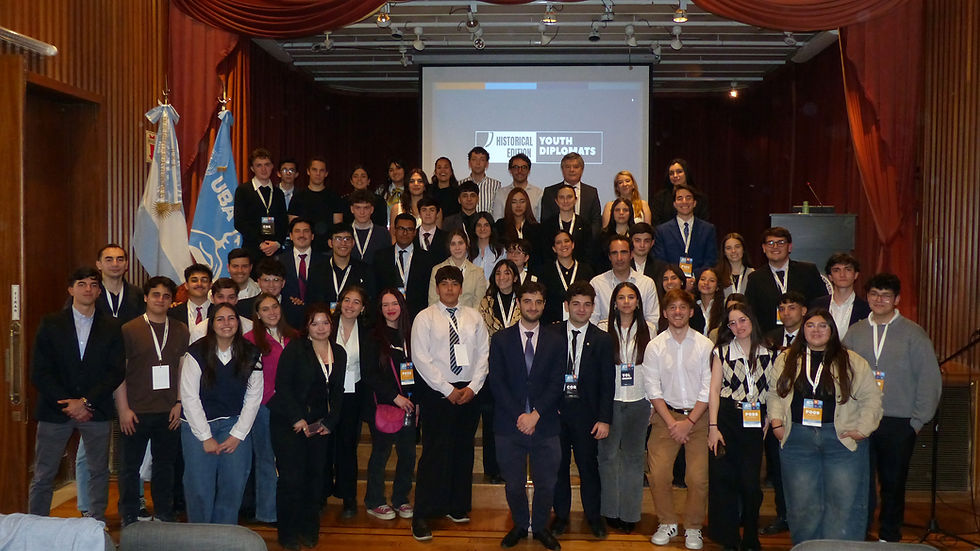Diplomacy, Football, and Power: The Global South Debated Its Place in FIFA
- Kairos Global

- Apr 13, 2025
- 2 min read
With a critical lens on neocolonialism in football and the role of the Global South, the sixth edition of Youth Diplomats brought together 50 university students at the University of Buenos Aires (UBA) to simulate FIFA bodies, debate diplomatic strategies, and challenge the rules of the game through youth diplomacy.

Buenos Aires became the stage for a new diplomatic simulation where football and global politics intersected like rarely before. From April 4 to 6, the School of Economic Sciences at the University of Buenos Aires hosted the sixth edition of Youth Diplomats, a civic education and leadership program that combines training, debate, and diplomatic simulations for university students from across the country.
Youth Diplomats is one of the most disruptive educational initiatives in recent years. It aims to foster critical thinking, negotiation, conflict resolution, and teamwork in the next generation, all within a rigorous yet collaborative academic environment. With the premise of “breaking down structures” through the representation of national and international actors, participants gain firsthand insight into the workings of multilateral organizations, their internal tensions, and their real-world impact.
This edition focused on a theme as bold as it is timely: the nationalization of players in international football, explored from a Global South perspective and its relationship to new forms of sports neocolonialism. This topic not only allowed for an in-depth analysis of the geopolitics of sports but also opened space for reflection on structural inequalities in access to opportunities, the appropriation of talent, and the construction of power through football.
With this in mind, 50 students from diverse academic backgrounds and provinces took on the roles of diplomatic representatives, debating within three simulated FIFA bodies: the Council, the Member Associations Committee, and the Governance, Audit and Compliance Committee. From policy analysis to drafting resolutions, the challenge was to collectively envision new, fairer rules of the game.
The program also featured a series of training sessions led by guest speakers who covered key topics such as global leadership, the influence of non-state actors, and the intersection of sports, politics, and identity.
The active participation and dedication of the volunteers were essential to delivering a new edition that continues to position Youth Diplomats as one of the most innovative and transformative educational experiences in the country.
By introducing high-complexity debates in simulated contexts, Youth Diplomats proves that diplomacy is no longer just the domain of governments—it is also the responsibility of an informed, critical, and committed youth striving to change the world.






Comments